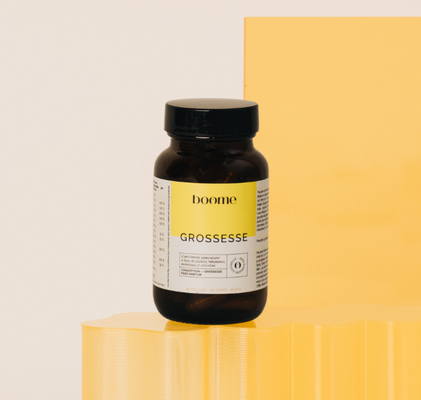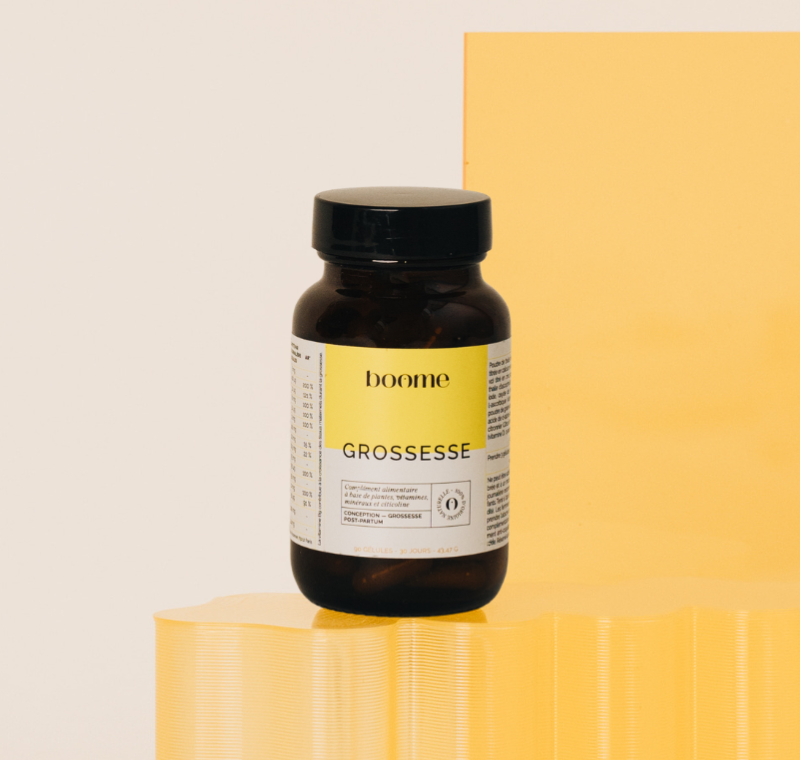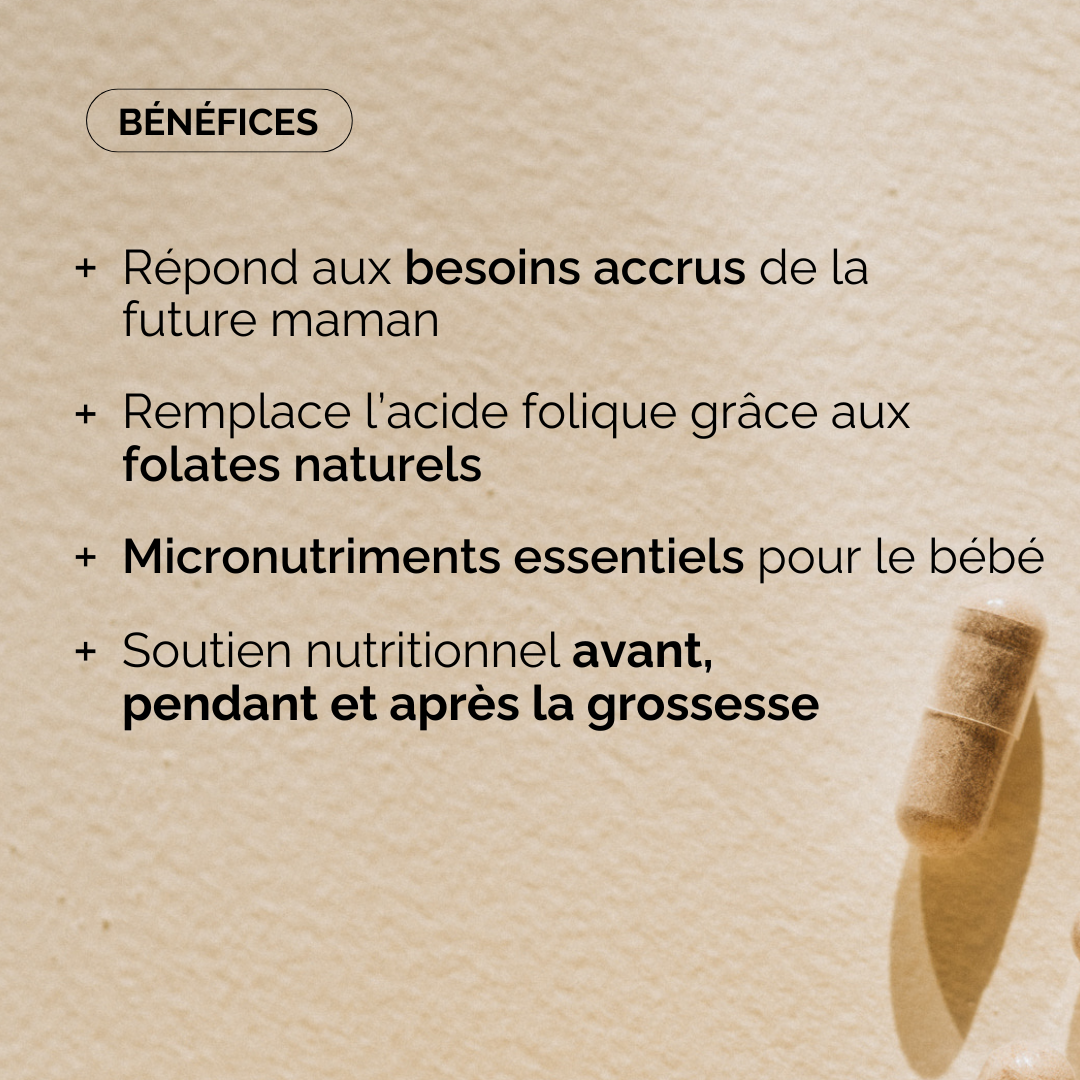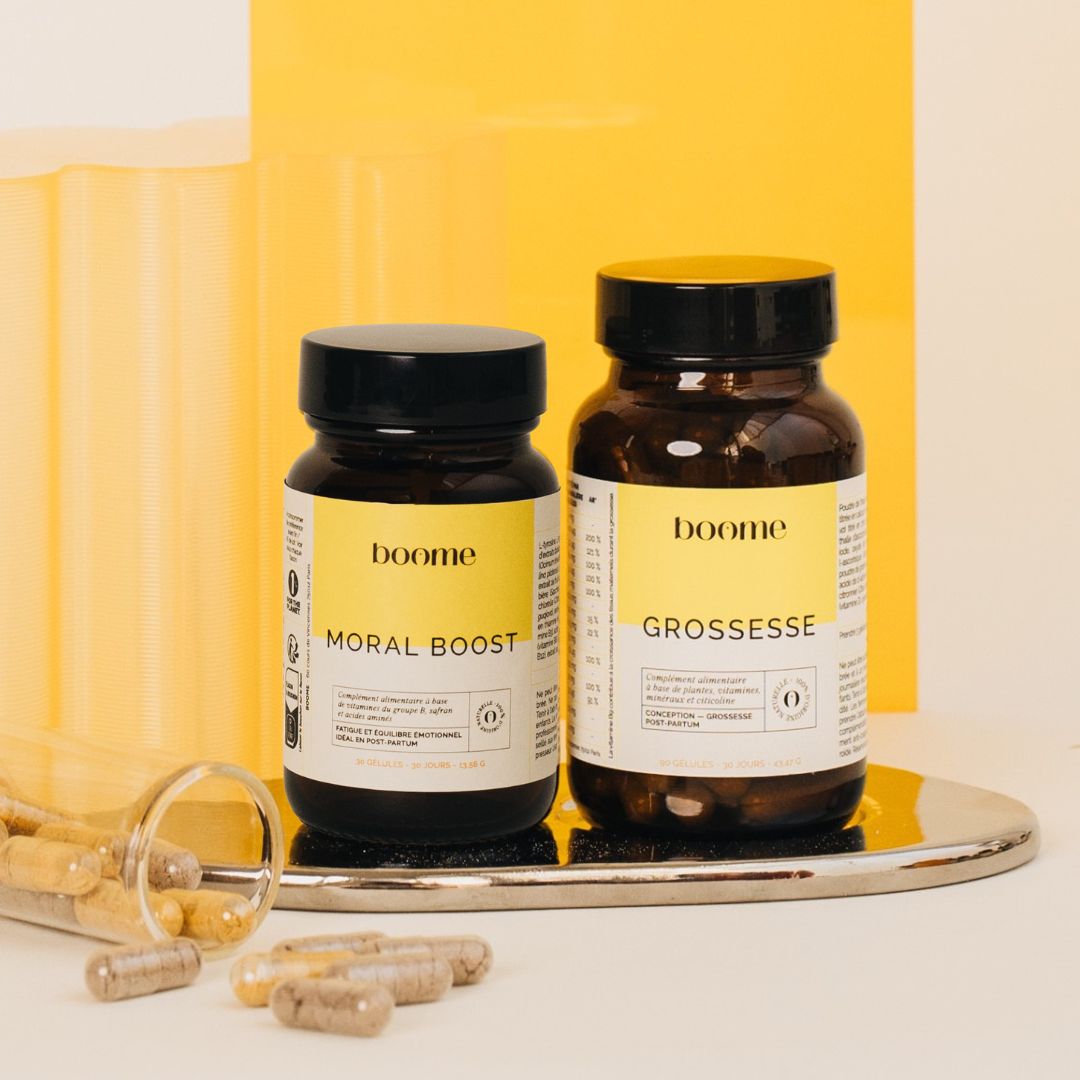
Present in large quantities in seawater, iodine is an essential trace element that contributes in particular to normal cognitive function and the normal functioning of the nervous system. Iodine is particularly concentrated in the thyroid gland.
The ANSES estimates that a pregnant woman's iodine intake is between 200 and 250 micrograms per day , compared to 150 micrograms outside of pregnancy. French epidemiological studies have shown that 80% of pregnant women have iodine levels below 100 micrograms per liter. Most of them are therefore iodine deficient.
What is the role of iodine during pregnancy?
According to the WHO (World Health Organization), iodine is essential for the proper neurological development of the fetus and young child. During the first few months, the fetus relies exclusively on its mother's thyroid hormones. It needs iodine to develop and to produce its own thyroid hormones, which play a vital role in its neurosensory development. Nerve tissue begins to develop as early as the second month of pregnancy, and severe iodine deficiency can have irreversible effects on the child's brain development.
Iodine also contributes to the proper functioning of the thyroid in the mother. Indeed, the thyroid produces its thyroid hormones (thyroxine hormone T4 and triodothyronine or hormone T3) from the iodine it finds in the body and its diet. An iodine deficiency can therefore slow the production of these hormones.
Iodine is therefore essential for the proper functioning of the thyroid, nervous system, and cognitive functions for both mother and child. This is why it is important to ensure that iodine reserves are not depleted during pregnancy.
Increased need for iodine during pregnancy.
During pregnancy, thyroid activity naturally increases. Starting in the second trimester, a small amount of iodine is mobilized by the placenta and amniotic fluid. A pregnant woman's iodine needs are therefore increased. Also, be aware that you are more likely to be iodine deficient if you are expecting twins, if you have pregnancies close together, if you are a vegetarian, or if you have a known thyroid condition.
What are the consequences of iodine deficiency or excess?
> Severe iodine deficiency can lead to maternal hypothyroidism, characterized by insufficient production of thyroid hormones. Symptoms of hypothyroidism can include excessive fatigue, weight gain, sensitivity to cold, constipation, dry hair and skin, and memory and concentration problems.
Iodine deficiency can also lead to increased creatinine in the urine, which can be used as an indicator of deficiency.
In the fetus, iodine deficiency during pregnancy can lead to mental and physical delays. Studies have shown that children born to mothers with iodine deficiency may have lower IQ and cognitive impairment.
It should also be noted that women with an iodine deficiency may experience fertility problems.
> Conversely, excessive iodine intake can also have harmful effects on the baby's intellectual development and lead to congenital hypothyroidism.
Do not hesitate to consult health professionals who can prescribe regular blood tests to assess whether iodine supplementation is necessary or not.

Achat express










